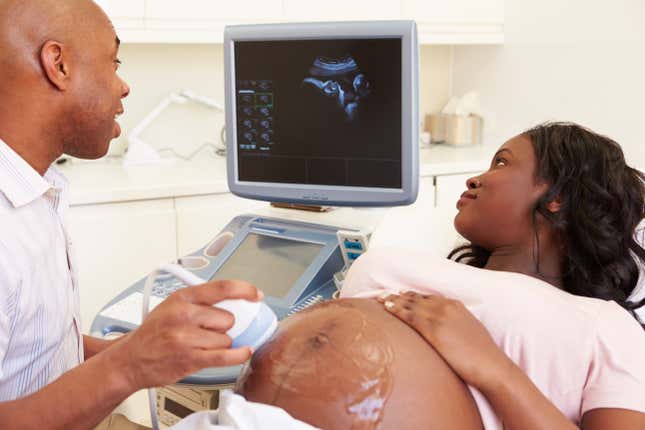
Despite its status as a “developed” nation, about 700 women will die each year from complications related to pregnancy or childbirth in the U.S.—more than any of its peers. Of that number, a disproportionately high number are black women—from 2007 to 2016, black mothers died at a rate of 3.2 times that of white mothers, according to NBC News. The statistics are sobering, and over the course of the last few years, still remain troubling: in 2018, black women were shown to die from pregnancy-related causes at 2.5 times the rate of white women.
This heartbreaking trend is global. In the U.K., which has some of the lowest maternal mortality rates in the world, black mothers are five times more likely to die from complications related to pregnancy and childbirth; one recent study found nonwhite women in Brazil and black women in the Netherlands had similarly high disparities when it comes to maternal mortality.
Black Maternal Health Week, an annual campaign founded by the Black Mamas Matter Alliance, shines a light on these disparities with the goal of education and advocacy: alerting families and healthcare practitioners of the risks that face black women face, centering and validating black women’s experiences during and after childbirth, and advocating for policies and research that could eradicate the health gap. The campaign has run for the last three years from April 11 to April 17. This year, as the coronavirus strains health care systems across the globe, the need for us to focus on black maternal health is as urgent as ever.
Mothers have expressed concern about keeping their babies healthy as social distancing policies mean fewer hospital visits and direct care. Many hospitals around the country are allowing pregnant women just one visitor to accompany them while they are birthing: a sensible move to help contain the spread of the virus, but one that potentially cuts out important advocates for black mothers, like doulas, out of the process.
COVID-19, the disease caused by the coronavirus, also intersects with black maternal health in other ways. Public health experts agree that structural racism plays a big part in high black maternal mortality rates: black women are more likely to be uninsured, meaning they, as a whole, start prenatal care later than nonblack women, and are more likely to lose insurance coverage after they give birth. As a 2017 NPR story reports, African American mothers also shared consistent stories of feeling devalued and disrespected by their healthcare providers. Finally, chronic conditions like diabetes, hypertension, and obesity—all of which affect African Americans at relatively high rates—can make pregnancies riskier.
These factors—lack of access, inadequate care from medical providers (supported by data showing the needs of black patients are consistently neglected or mismanaged), and underlying health conditions—also help explain the coronavirus’ disproportionate toll on African American lives.
But if the root causes of high COVID-19 deaths and childbearing deaths are similar, it follows that they may share the same solutions. Here, at least, there is some good news: never before have so many people—journalists, physicians, and policymakers—been so concerned with making birthing safer for black women. Across the country, agencies have done a better job of tracking maternal health data, spurred in part by black women lawmakers who have made maternal health a priority. Among them are California Senator Kamala Harris, who reintroduced the Maternal CARE act last year, and Massachusetts Congresswoman Ayanna Pressley.
“The lived experiences of black women demonstrate how racism and trauma directly impacts the health and wellbeing of marginalized communities for generations,” Pressley said about her 2019 MOMMIES Act, which would have greatly expanded Medicaid coverage and pushed a “community-based, holistic approach” to maternal care.
As we refocus, once again, on the ways we can support black women during one of the most vulnerable times of their lives, it’s worth remembering this fact, made all the more clear in the middle of a global pandemic: The policies and practices that would make black women safer, at all stages of life, are the same ones that make all Americans healthier and more secure.

